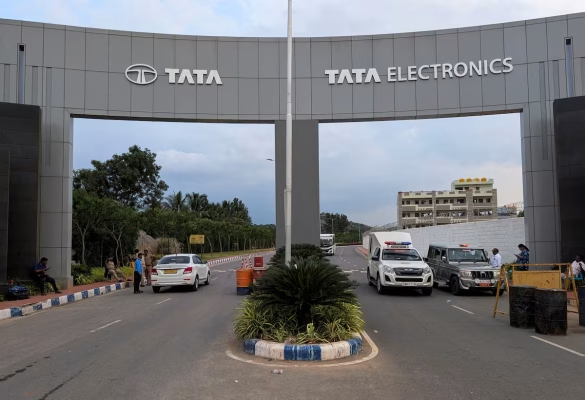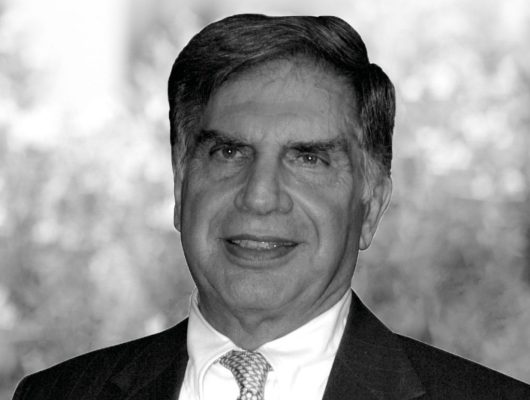This morning, I woke up to the heartbreaking news of Ratan Tata’s passing. His departure marks a monumental loss, not just for India but for the entire world. Ratan Tata, the former chairman of Tata Sons, was much more than a business leader; he represented hope, integrity, and a forward-thinking vision. His absence leaves a deep void in the hearts of millions who admired his remarkable journey and transformative impact on society.
Many recognized Ratan Tata as a responsible industrialist who viewed business as a vehicle for positive change. He was dedicated to philanthropy, innovation, and social responsibility, setting new benchmarks for corporate leadership in India and beyond. The news of his passing feels like the closing of a chapter in a story that inspired countless individuals to pursue excellence while also giving back to their communities.
Early Life of Ratan Tata
Ratan Naval Tata, born on December 28, 1937, in Bombay (now Mumbai), India, is a name synonymous with success, leadership, and philanthropy. The world remembers him as the chairman of Tata Sons, the holding company of the Tata Group, one of India’s largest and oldest empires. But behind the success lies a story of determination, resilience, and a deep-rooted desire to make a difference.

Ratan Tata’s early life was full of challenges. He was born into a wealthy family but faced hardships after his parents, Naval Tata and Sonoo Tata, separated when he was only ten. He and his younger brother, Noel Tata, were raised by their grandmother, Lady Navajbai Tata. Despite these challenges, Ratan Tata’s upbringing in the Tata family ingrained in him the values of integrity, humility, and the importance of giving back to society.
Ratan Tata attended Campion School and later Cathedral and John Connon School. His academic journey took him to the United States, where he graduated with a degree in architecture from Cornell University in 1962. He further refined his leadership skills through an Advanced Management Program at Harvard Business School in 1975.
Ratan Tata’s Ascent in the Tata Group
Ratan Tata began his career at the Tata Group in 1961, starting as a general worker on the shop floor of Tata Steel in Jamshedpur. Unlike many heirs to business empires, he chose to learn from the ground up, which shaped his empathetic leadership style and deepened his understanding of employee dynamics.
In 1991, he became chairman of Tata Sons, succeeding J.R.D. Tata during a time of significant economic change in India. Under his leadership, the Tata Group embarked on a new era of global expansion and innovation, adapting to the challenges of a liberalizing economy.
Making a Mark Beyond Traditional Industries
Ratan Tata’s influence spanned various sectors, notably technology and innovation. He played a pivotal role in diversifying the Tata Group’s portfolio into IT, telecommunications, and other tech-driven industries.
The Rise of Tata Consultancy Services (TCS)

Under his leadership, Tata Consultancy Services (TCS) emerged as one of the world’s leading IT services firms. Today, TCS stands as a powerhouse in the global technology arena, providing various services from software development to IT consulting. Ratan Tata’s vision positioned India as a leader in the tech domain.
Electronics Manufacturing and iPhone Production

Ratan Tata’s legacy also includes the Tata Group’s significant entry into electronics manufacturing, notably its collaboration with Apple to produce iPhones in India. This strategic partnership not only bolstered India’s manufacturing capabilities but also aligned with the government’s Make in India initiative, generating jobs and enhancing India’s position in the global supply chain.
Achievements of Ratan Tata
The era of Ratan Tata’s leadership at the Tata Group is defined by a group of important accomplishments that have had a deep impact on both the company and India’s industrial landscape. During his tenure, the Tata Group diversified its operations, venturing into sectors such as IT, telecommunications, and retail. One of his most remarkable feats was the introduction of the Tata Nano in 2008, aimed at providing affordable transportation for millions in India. Despite encountering challenges in the market, the Nano represented a bold attempt to innovate in the automotive sector.

Another notable milestone was the acquisition of Jaguar Land Rover in 2008, which not only reconstruct the iconic British brands but also highlighted Tata’s dedication to global expansion. This strategic move elevated Tata Motors’ standing on the world stage and showcased the group’s ability to compete in the luxury automotive market.
In terms of social impact, Tata Trusts, under his guidance, have financed numerous initiatives in healthcare, education, and rural development, directly benefiting millions across India. His commitment to corporate social responsibility earned him numerous accolades, including the prestigious Padma Bhushan and Padma Vibhushan awards, recognizing his contributions to industry and society.
Commitment to Social Causes
Beyond his business acumen, Ratan Tata was renowned for his philanthropic efforts. He firmly believed that businesses should serve society, directing much of Tata Group’s profits toward charitable initiatives. The Tata Trusts, which he oversaw, have made substantial contributions to healthcare, education, and rural development, positively impacting millions.
During the COVID-19 pandemic, his commitment to social responsibility shone brightly. Tata Trusts and Tata Sons pledged significant resources toward healthcare support, vaccination drives, and relief efforts, setting a standard for industrialists globally.
Leadership Philosophy and Vision
Ratan Tata’s leadership style was marked by humility, empathy, and a relentless pursuit of excellence. He led by example, treating everyone with respect and valuing their contributions. While many corporate leaders seek the spotlight, Ratan Tata preferred to let his actions speak louder than words.
He was also an advocate for innovation and risk-taking. His philosophy of learning through action, a principle that has driven the Tata Group’s growth.
A Long-Lasting Influence on the Global Stage
Ratan Tata retired from the chairmanship of Tata Sons in 2012, passing the reins to Cyrus Mistry and later Natarajan Chandrasekaran. However, his legacy continues to inspire a new generation of entrepreneurs and business leaders. Even after retirement, he remains active in mentoring startups and investing in innovative ventures both in India and abroad.
His investments in startups like Ola, Paytm, and Zivame reflect his belief in youth-led innovation and the future of technology-driven solutions. He is a prominent figure in the Indian entrepreneurial landscape, encouraging young individuals to chase their dreams with integrity and determination.
The Inspirational Legacy of Ratan Tata

Ratan Tata’s life and career are a source of inspiration for millions. From transforming the Tata Group into a global enterprise to making significant strides in technology and philanthropy, his journey exemplifies visionary leadership and resilience. His efforts in manufacturing iPhones in India and acquiring luxury brands like Jaguar Land Rover have set new industry benchmarks, proving that Indian businesses can excel on the global stage.
Ultimately, Ratan Tata’s legacy is not solely about building a business empire; it is about uplifting society, giving back, and inspiring future generations to dream big. His influence on the tech sector and unwavering commitment to philanthropy establish him as one of the most respected and admired figures in modern business.


